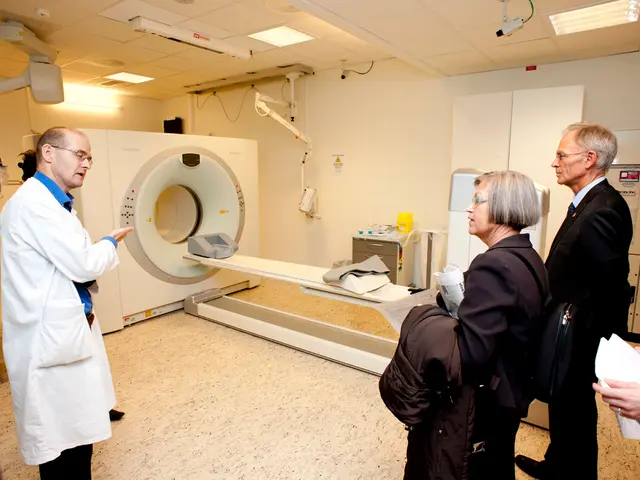The Secret to Potential Happiness Lies in Manipulating the 'Expectation Effect'
In the realm of psychology, a fascinating phenomenon known as the "expectation effect hack" is gaining traction. This method, rooted in the power of positive thinking, can significantly impact our daily lives by boosting happiness, resilience, and overall well-being.
The expectation effect hack works by consciously setting positive expectations about future events or outcomes. This simple act can lead to increased confidence, reduced stress, and improved performance in various aspects of life. By tapping into psychological mechanisms, what we expect influences how we perceive and engage with experiences, often creating a self-fulfilling prophecy that enhances our well-being.
Applying the expectation effect hack in our daily lives might involve visualizing positive outcomes before a challenging situation, framing experiences with optimism, or using positive expectations to influence our brain's chemistry. By doing so, we can trick our brains into a more optimistic mindset, raising our happiness and resilience in everyday scenarios.
For instance, visualizing a successful outcome before a big presentation can elevate confidence and motivation. Framing a job interview as an opportunity for growth rather than a source of stress can reduce anxiety and cultivate a more positive emotional state. Even in seemingly mundane tasks, such as visiting the DMV, the expectation effect hack can turn a potentially negative experience into an opportunity for people watching or responding to emails.
However, it's crucial to remember that the expectation effect doesn't override reality or common sense. It works as a result of one's actions, not instead of them. Avoid letting expectations become too disconnected from action; don't expect things over which you have no control. For example, expecting to meet the love of your life at the DMV might lead to disappointment. Instead, replace negative expectations with positive ones that are achievable, such as viewing a DMV visit as an opportunity for people watching or responding to emails.
The expectation effect is not about wishful thinking; it's about aligning thoughts, energy, and behaviour with desired experiences, while staying present and grounded. It's about believing that something is possible, which can increase one's chances of achieving it. For instance, instead of focusing on the length of DMV lines, practice thinking about bringing things to entertain yourself while waiting in line to enjoy the experience.
In essence, the expectation effect hack is a way the brain turns beliefs into reality by aligning the brain and body with expected outcomes. It's a powerful tool for boosting happiness, especially in situations that might otherwise be seen as negative or boring. However, it's important to maintain a realistic optimism when using the expectation effect, not allowing it to become blind optimism.
In summary, by deliberately expecting positive outcomes, you can trick your brain into a more optimistic mindset, raising happiness and resilience in everyday scenarios. This aligns with scientific understanding that anticipatory expectations affect dopamine pathways and emotional experiences, helping you feel better and perform better overall.
Embracing the expectation effect hack in health-and-wellness can lead to improved mental-health, as it encourages positive thinking and reduces stress. Science supports the idea that anticipatory expectations impact dopamine pathways and emotional experiences, contributing to better mental health and overall well-being. For example, setting positive expectations before a challenging task can boost confidence and resilience, aiding in the process of achieving these goals.




